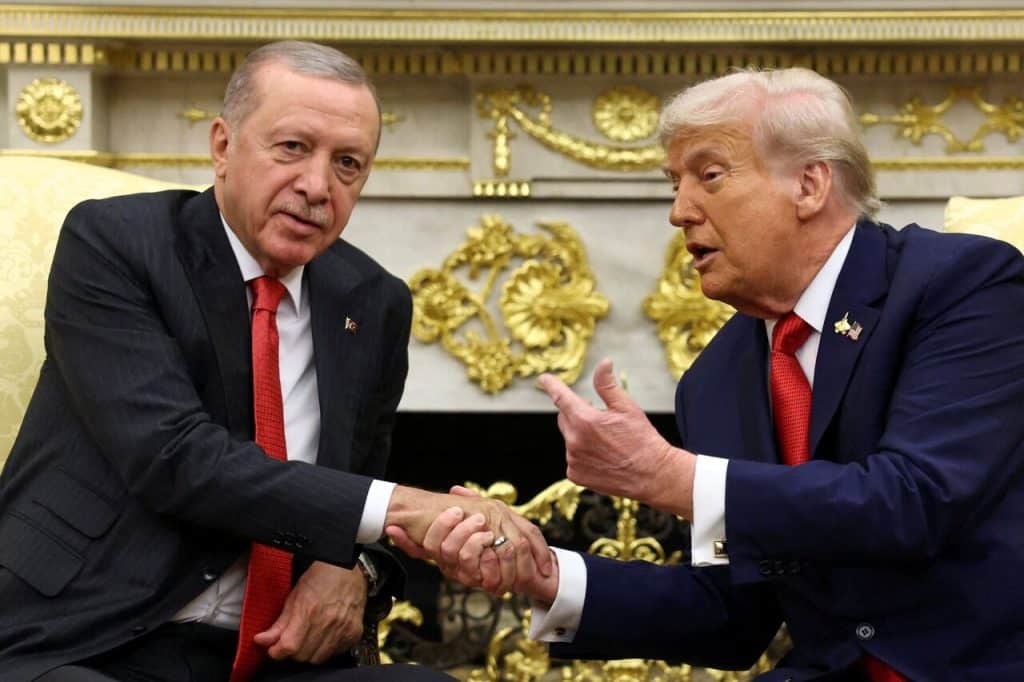Türkiye’s $100 million offer to resolve Halkbank case.
Reuters reported on Wednesday that the bank would not plead guilty in the case, citing sources familiar with the talks, under a proposal that was discussed and that came with additional conditions, at Ankara’s preference.
Halkbank faces charges of fraud, money laundering, and collusion for allegedly helping Iran circumvent Washington’s economic sanctions. The bank has pleaded not guilty.
It was not immediately clear how the US side reacted to the Turkish offer or whether talks continued after Trump, Erdogan and their top ministers met.
Some analysts have speculated that the cost of any settlement could exceed $100 million. Between 2009 and 2015, eight European banks – including HSBC, BNP Paribas, Standard Chartered, and Credit Suisse – were fined more than $14 billion for charges including violating US sanctions.
France’s Banque Paribas also agreed to pay about $9 billion to settle charges of violating U.S. sanctions on Sudan, Cuba, and Iran. The bank had pleaded guilty.
It is worth noting that on October 4, a few days after Donald Trump and Recep Tayyip Erdogan met, the U.S. Supreme Court rejected Turkey’s lawsuit in the Halkbank case and emphasized the continuation of the judicial investigation into the bank’s accusations of circumventing sanctions on Iran.
With their decision, the U.S. Supreme Court justices upheld an earlier ruling by the New York Court of Appeals that had allowed the criminal case against the bank to continue.
The Halkbank case was first raised by the U.S. federal prosecutors in 2019 (1398 solar month) and has since become a source of tension in relations between Washington and Ankara. Erdogan had previously described the filing of the case as an “illegal and ugly act.”
Prosecutors in the Manhattan U.S. Attorney’s Office allege that Halkbank secretly transferred more than $20 billion in frozen Iranian funds through shell companies and financial service providers in Iran, Turkey and the United Arab Emirates.
The bank covered up the transfers by converting Iranian oil revenues into gold and cash and providing false documents related to food exports, prosecutors said.

